Developer Day 2024
April 30, 2024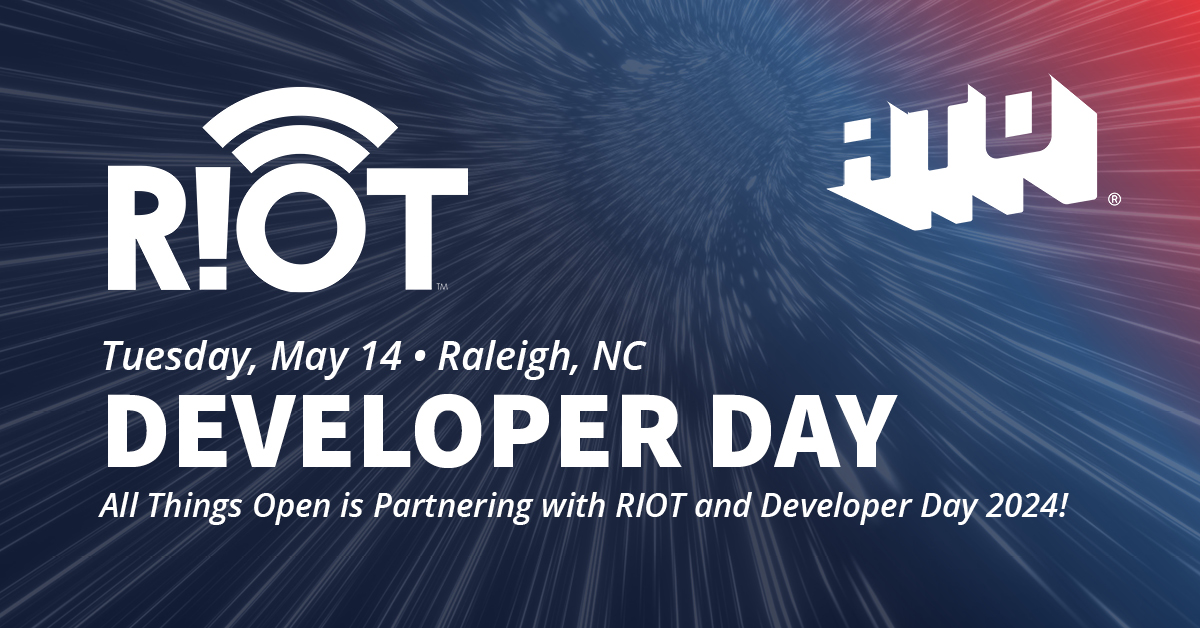
We’re Partnering with RIOT and Developer Day 2024!
We’re proud to announce we’re partnering with RIOT to help make their annual Developer Day event the best ever!
At this FREE event, we’ll be hosting our own track and giving away some super cool swag, so come out and join us.
The event will take place Tuesday, May 14 at the SKEMA Business School on NC State’s Centennial Campus in Raleigh. Doors open at 8:30 am, live programming begins at 9:00 am with keynotes, and the day wraps up by 2:45 pm. There’s also an exhibitor space to check out as well.
Developer Day Website & Registration
All Things Open Content / Tracks
The ATO track will feature 4 world-class speakers and presentations.
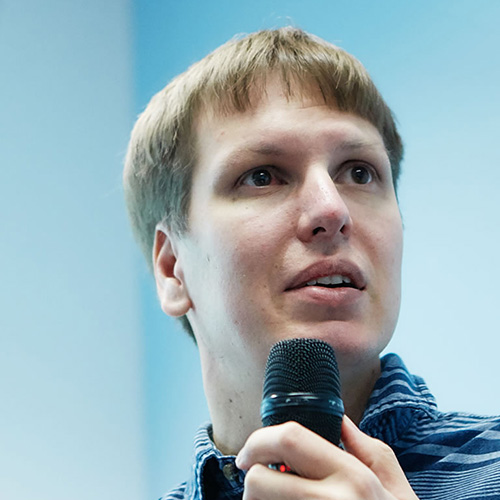
10:15 – 11:00 am ET
What Developers should know about Observability
Abstract: As a Developer, you want your application to stay up and perform well, and if things go wrong, find the root cause of the issue and resolve it quickly. This is achieved through robust Observability, enabling insight into both application and infrastructure components.
In this presentation, we will explore modern observability and instrumentation approaches, focusing on the Pillars of Observability – “Metrics, Logs, Traces”. We’ll delve into the OpenTelemetry (OTEL) framework and dynamic instrumentation with eBPF. Additionally, we’ll address challenges posed by modern architectures, such as microservices, and discuss strategies to overcome them.
Speaker: Peter Zaitsev, Founder, Percona
Peter Zaitsev is an entrepreneur and co-founder of Coroot, Percona, FerretDB and other tech companies. As one of the leading experts in Open Source strategy and database optimization, Peter has applied his technical knowledge and entrepreneurial drive to contribute as a board member and advisor to several open source startups. Additionally, Peter is the co-author of the book “High Performance MySQL: Optimization, Backup and Replication,” one of the most popular books on MySQL performance.
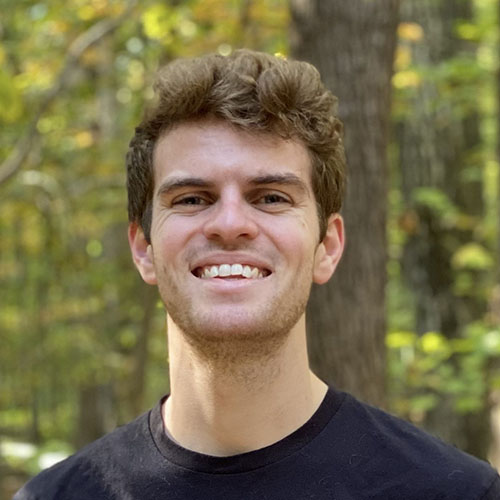
11:10 – 11:55 am ET
Transferrable Computation: WebAssembly from Microcontrollers to the Browser
Abstract: While WebAssembly (Wasm) is frequently described as an alternative to running JavaScript in the browser, it has started to gain traction in other areas, including embedded systems. Because of features like a lean runtime, robust sandboxing, and compilation support in many languages, Wasm can make securely executing dynamic code in constrained environments significantly simpler. This versatility is especially compelling in systems where it is desirable to execute the same code in multiple environments, or to dynamically migrate execution from one environment to another. However, reaching for Wasm is not always the right decision, and in this talk we’ll explore how it works, when you should use it, and when you probably shouldn’t.
Speaker: Dan Mangum, Head of Engineering, Golioth
Dan is an experienced engineering leader, having built products and teams at both large companies and small startups. He has a history of leadership in open source communities, and is equally comfortable designing digital logic, writing firmware, and building scalable distributed systems. Dan is also passionate about the history of computing and sharing technical knowledge, both as a frequent speaker at conferences and meetups, and via his podcast on processor microarchitecture.
- LinkedIn: /in/danielmangum/
- Mastodon: @hasheddan@types.pl
- Twitter / X: @hasheddan
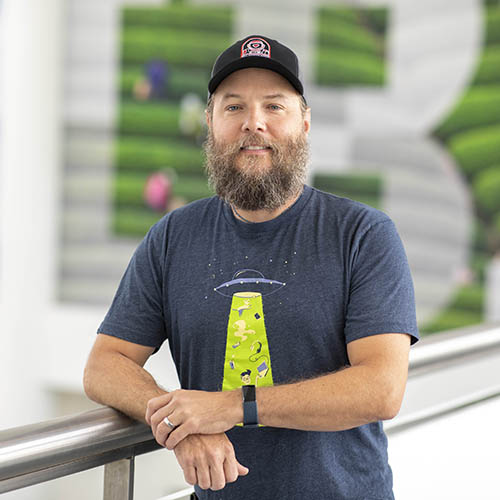
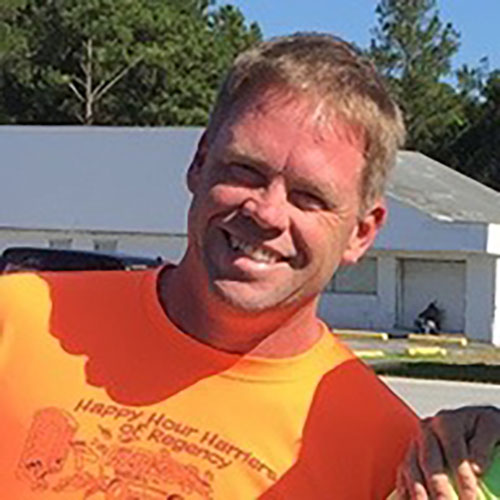
1:00 – 1:45 pm ET
A Java Space Quest: Roam the Universe using hand gestures, sensors, Arduinos, and API’s
Abstract: The Space Rover Mission is an interactive, table top IoT game in which you take control of a 3D-printed spaceship, and guide it home by using simple hand gestures interpreted by a laptop camera. Along the way, you have to navigate obstacles like meteor showers and the sun that cause damage to the ship, while visiting neighboring planets to gather supplies. The game uses popular IoT hardware (Arduino, ESP WiFi modules, and sensors) and a Java microservice architecture built with the rich set of API’s from both MicroProfile and Jakarta EE.
In this talk, you will learn how to bring your Arduino projects online using modern Java technologies by discussing the following topics:
- How the Space Rover game came about.
- The architecture of the game from both a hardware and software standpoint.
- The developer benefits of using the API’s provided by the Eclipse foundations’ MicroProfile and JakartaEE specifications to rapidly create your Cloud applications.
Speakers:
Harry L. Hoots, Software Engineer, IBM
Harry is a Software Engineer working as the team lead on the Open Liberty Kernel team and is based at IBM’s RTP Laboratory in Durham, NC. He has 25 plus years of experience working in various IBM divisions such as Global Business Services, and the IBM Cloud and Cognitive group. Harry holds a B.S. degree in Computer Science from North Carolina State University. Check out this blog post to learn more about Harry’s activities in open source.
- Twitter: @HarryHoots3
Chuck Bridgham, Senior Software Engineer, IBM
Chuck is the WebSphere Core Runtimes architect and Development lead for the Open Liberty Project based in IBM’s RTP Laboratory in Durham, NC. Chuck has been involved in open source projects spanning 20 years including pioneering the Eclipse platform, Eclipse Web Tools Projects for Java and Node.js.
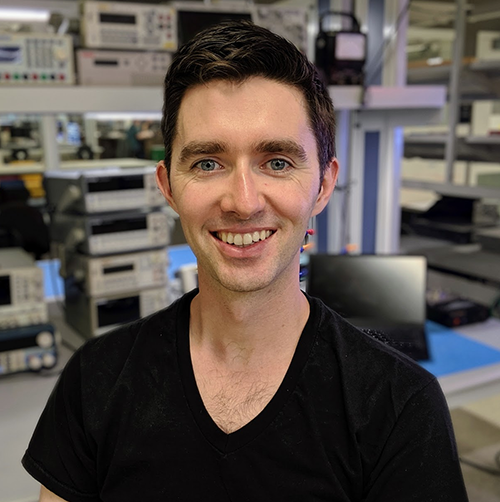
1:55 – 2:40 pm ET
Taking Your IoT Hardware To Production (With Zephyr)
Abstract: Building any piece of electronics is difficult, but when you’re looking to scale to large numbers and connect the product to the internet, you need a bigger toolbox. The open source RTOS and Ecosystem Zephyr can help engineers to take on their problems. This talk will go through 5 stages of product development and many of the tools that will help to migrate a product from 1 to 1 million units.
Speaker: Chris Gammell
Chris Gammell is an electrical engineer, podcaster, and design consultant from Durham, NC. He has over 20 years of electronics design experience, working for companies in the industrial, silicon, communications, and test and measurement space. His main work is as DevRel Lead at Golioth, an IoT SaaS startup building infrastructure for IoT deployments. Previously, he created hardware and firmware designs for clients ranging from connected sensor networks to wearable performance tracking.
- LinkedIn: /in/chrisgammell/
- Mastodon: @chris_gammell@chaos.social